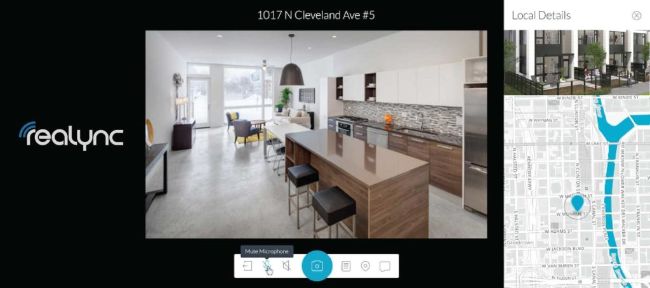5 out of the box real estate marketing ideas to help you stand out
Unique marketing tactics that will help you, as a commercial or residential realtor, stand out from your competition — especially on the web.
As a realtor, you’re selling two things: yourself and your properties. Whether you’re in the commercial or residential world, the psychology behind selling is the same.
Industry experts also happen to be in agreement, searching the internet is where the purchasing process begins for buyers of all kinds.
But that certainly isn’t a space free from competition. As a realtor, you can brand yourself in some of the more traditional ways, but what if you’re looking to really stand out?
We’ve decided to blow the lid off the box and assemble some of the most out-of-the-park real estate marketing ideas that will help any realtor make a name for themselves in their market. So get ready to Always Be Closing with these unique real estate marketing strategies.
1. Wrap a complimentary moving truck
The first step for a consumer is the property purchase, the next is moving. What better way to involve yourself in the entire customer journey than providing a complimentary moving truck?
Investing in your own truck also gives you the opportunity to customize the exterior with your branding and advertisement, while providing a useful service for your clients.

2. Build a custom website or lander for each property
In 1981, 22% of home buyers read newspaper ads to find a home. In 2016, 44% looked for properties online first.
Creating a focused online experience caters to the rising trend of online property hunting. It also gives you the chance to create an SEO-focused page that can capture buyers looking for specific properties.
With tools like Wix, Weebly, and Squarespace, it’s easy to build a page with a vanity URL unique to your portfolio that you can link to on your personal realtor page.
With millennials making up the largest group of first-time home buyers at 66%, followed by Generation X at 26%, the extra effort won’t go unappreciated by the digital generation.
3. Host community events that invest back into local neighborhoods
Building a rapport within a community is a great way to build a good reputation. It’s often a great catalyst for generating positive word-of-mouth referral as well.
Sponsoring events that target an area’s greatest needs demonstrates thought leadership. Although an event itself may not generate leads, it’s a bold move towards building out a greater brand reputation.
Examples of community events you could sponsor include:
- School supply drives supporting teacher/classroom needs
- Round table meal and discussion-based events encouraging cultural conversation
- Adoption events for local animal shelters
- Renting space or providing pro bono services for a woman’s shelter
- Sponsoring senior citizen activity days
4. Set up a virtual open house
You can order food, furniture, even a pet, all from the comfort of your own couch thanks to the internet. Why shouldn’t you be able to tour a property?
With a little help from a videographer or cinematographer, you can film a walkthrough for each property delivering a near comparable experience to physically seeing the space.
Add pop-ups with information such as dimensions, materials, and various facts about the space. And by enabling a live chat function on your site, viewers can send in questions in real-time.

5. Pop-up events tailored to your target buyer
Similar to the idea of community-centric events, pop-up events would be focused on generating leads within your target demographic.
As the viral success of retail pop-ups would demonstrate, people are drawn to experiences. By putting on experiences universally loved by your demographic, you can draw them in as a customer even before they have the intention to buy.
For example, if you’re looking to target millennials, then the made-for-Instagram art experience is all the rage. If you have a potential commercial property for sale, see if you can lease it out to a local artist on a discounted rate to create a temporary art installment that will draw in folks from the community.
This gives you the chance to showcase your space while garnering earned media in the process.
Get started with mobile marketing for real estate
As unconventional as these ideas may seem, they’re all rooted in discoveries unearthed by real estate marketing case studies from the last few years. While our five suggestions are creative offshoots from traditional tactics, they’re valuable tools for getting your brainstorm started in a different direction.
If there is one thing worth highlighting, however, it’s how a mobile-centric strategy is continually noted as a real estate trend showing no signs of slowing up. In fact, the National Association of Realtors’ Profile of Home Buyers and Sellers report found that 60% of online home searches start on mobile in 2022 — up from 50% in 2021.
While we may not be able to help you give a moving truck a car wrap, we certainly know a thing or two about mobile marketing here at SimpleTexting.
To learn some more about getting yourself or your agency involved in mobile, give our guide on Text Messaging for Real Estate a read. We think you just might find the marketing middle ground you’re in search of.
This article was published on May 20, 2019, by Meghan Tocci, and was updated on August 4, 2023, by Dani Henion. Nathan Ellering also contributed to this piece.